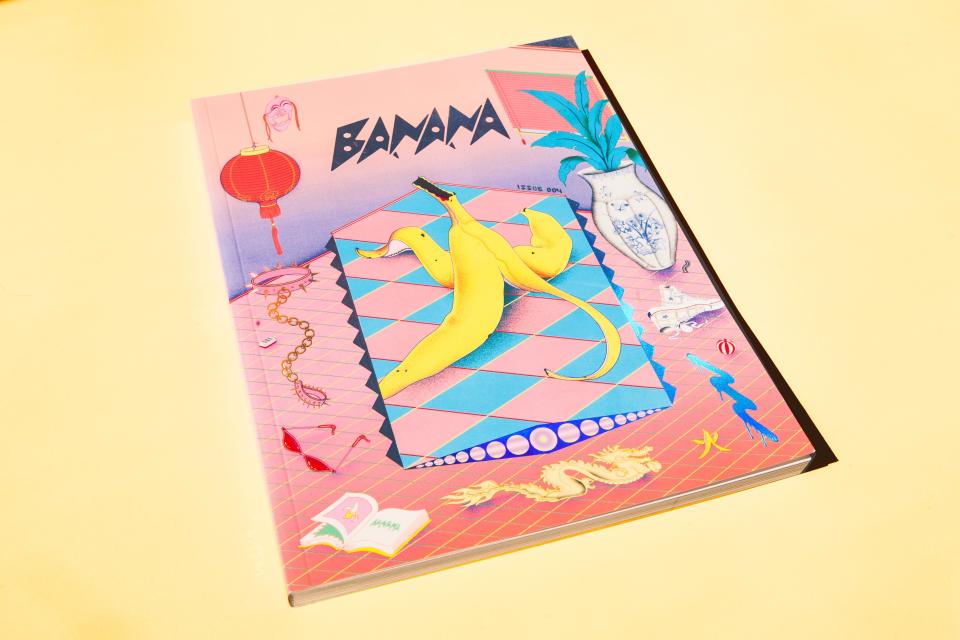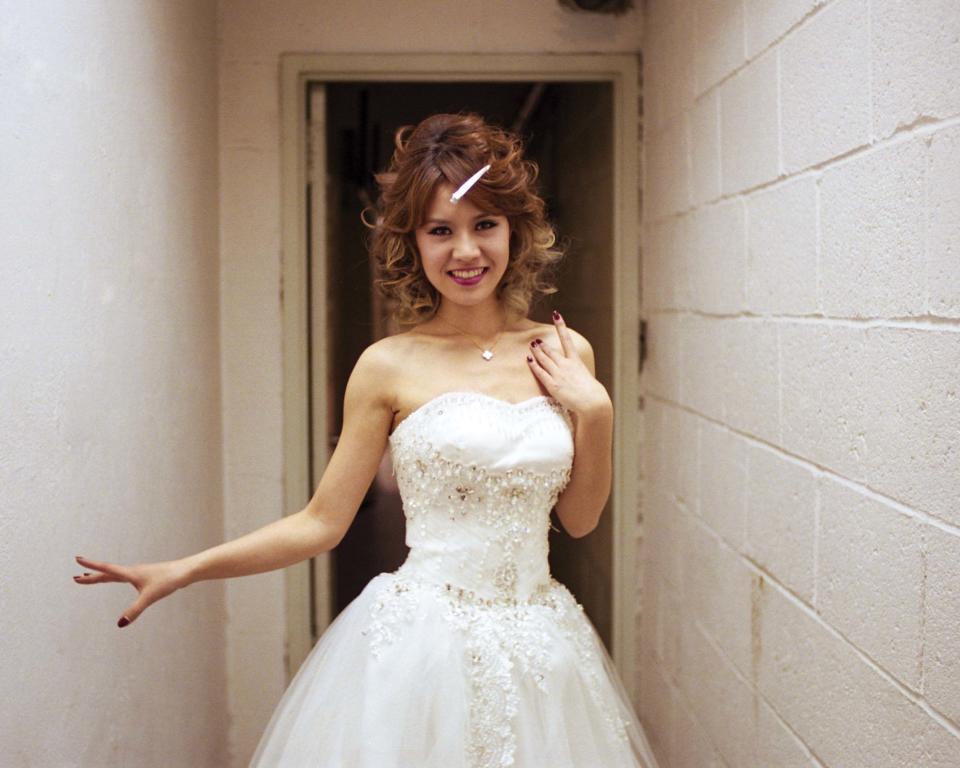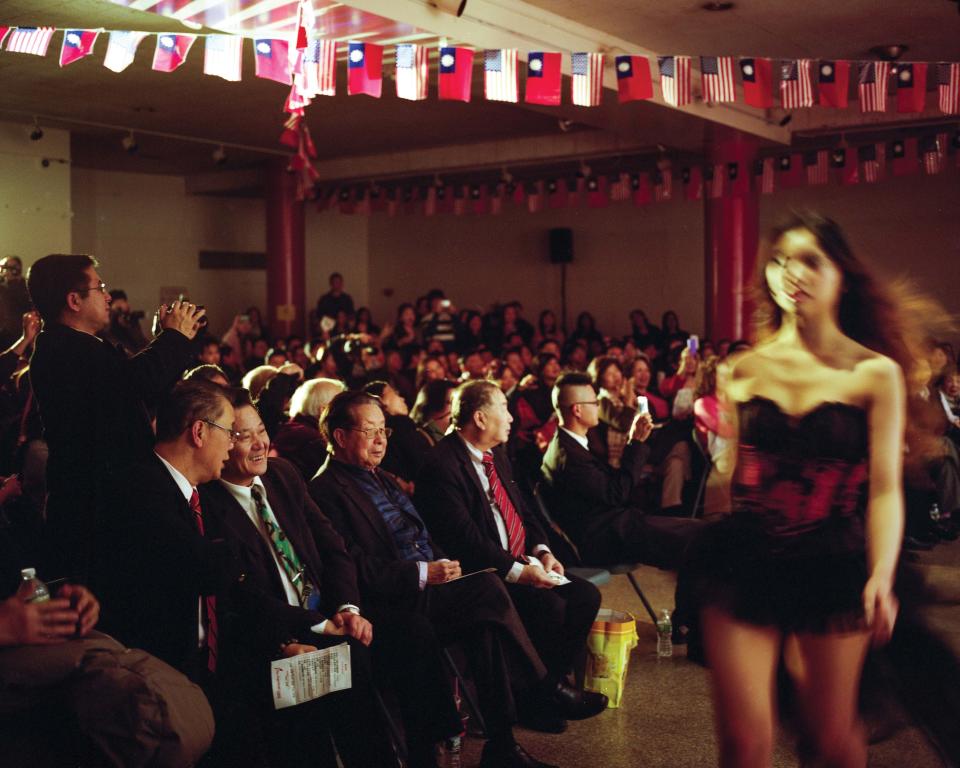Banana Magazine Is Exploring Asian-American Gender Identity in a Completely New Way
This is a piece on Banana Magazine founders Vicki Ho and Kathleen Tso as told to Allure. Banana Magazine is an annual print publication dedicated to contemporary Asian culture. Ho and Tso founded it in 2014 after noticing the lack of a platform that brings the growing Asian creative community together. Here, they discuss their fourth issue, which focuses on the question of “What is Asian-American masculinity and femininity?"
The idea of exploring Asian masculinity and femininity initially came from an intimate panel we held at New York’s Ludlow House focused on open conversations regarding Asian masculinity — an often complicated subject. Hosted by Hot 97 DJ Miss Info, the panel consisted of Jian DeLeon, editorial director of Highsnobiety; David Yi, founder of men’s beauty site Very Good Light; Jeff Staple, founder of Staple Design; Kevin Kreider, fitness trainer and model; and rapper Rick Lee, better known as Lyricks.

With the #MeToo and #TimesUp movements rising up around the time of our panel, it further exposed what many of us have intuitively known: the gender norms we are surrounded by within the U.S. are toxic. Yet whether it’s stereotypes of asexual men or “dragon ladies,” Asian-Americans haven’t always sat comfortably in mainstream Western gender roles anyway. We recognized there was a huge conversation within our collective and contemporary Asian identity in how we experience gender.
Whether it’s stereotypes of asexual men or “dragon ladies,”
Asian-Americans haven’t always sat comfortably in mainstream Western
gender roles.
We knew we had to expand the dialogue beyond just masculinity and knew we wanted to find Asians who would be willing to share their personal journeys with gender identity. So, for Issue 004, we used our print platform to continue exploring the multitude of ways Asian-Americans are embracing, rejecting, or reinterpreting gender ideals.
After spending time with each of the people we profiled and diving into their stories, we learned that some of our subjects reject patriarchy and privilege, while others consciously choose to play into certain stereotypes. Regardless, they were collectively united in doing what comes naturally to them: embracing who they are, even if it led to difficult negotiations with their family, community, and even themselves. We saw how Asian femininity is being embraced as a form of empowerment, pushing aside stereotypes of the submissive Asian woman. Masculinity, meanwhile, is a concept that many felt needed to be redefined.

Instead of trying to fit into a heteronormative, white-privileged space, there’s an opportunity to create new definitions of Asian-American masculinity, femininity, and everything in between. We can conceive of gender identities that are more cohesive, equal, and diverse. Perhaps the present moment can be an opportunity as well as a challenge.
We were incredibly fortunate to have the opportunity to speak with queer collective Bubble_T, comedian Will Choi, and racecar driver Verena Mei. We got to meet dominatrixes, Lucy Sweetkill, Dia Dynasty and Yin Q; and also plus-sized model P.S. Kaguya for their take on the very personal topic at hand. In Banana Magazine’s fourth issue, we explored a Chinese-American beauty pageant, the Miss Angel Model Contest, which reflects traditional Asian femininity.
Through Allure we’re excited to share more on that Chinese-American beauty pageant experience through the eyes of our photographer An Rong Xu and narrated by our co-founder of Chinese-American descent, Vicki Ho.
Instead of trying to fit into a heteronormative, white-privileged
space, there’s an opportunity to create new definitions of
Asian-American masculinity, femininity, and everything in between.
Below is an excerpt from Banana Magazine Issue 004, entitled "Miss Model Angel":

Banana Magazine 004_Miss Model Angel06.jpg
An Rong XuBeauty pageants in New York’s Chinese diasporas have always been a popular form of traditionalism and community building while promoting local Chinatown businesses. Like watered-down versions of the famous TVB-owned Miss Chinese International Beauty Pageant, contests of various stature frequently grace back covers of Chinese-language newspapers such as Sing Tao Daily or World Journal, right next to former pageant winners modeling for Chinatown jewelry shops.

Every girl seemed to uphold the same look — long, dark brown or black
hair that curled about two thirds down the nape; milky white skin
tone; perfectly filled eyebrows; a slim frame.
I could never read Chinese well but growing up in Brooklyn, I always found myself flipping through the pageant advertisements, curious about the beauty standards and fashion style on these girls who shared appearances I was familiar with but still felt foreign to me. Every girl seemed to uphold the same look — long, dark brown or black hair that curled about two thirds down the nape; milky white skin tone; perfectly filled eyebrows; a slim frame.

I always wondered what it took, physically and emotionally, to participate. In this series, photographer An Rong Xu shares a glimpse of local New York beauty pageant, the Miss Angel Model Contest from 2013. It’s an exploration of the inner workings behind a lifestyle of traditional Chinese beauty, virtue, and community pride.

To read Banana Magazine's entire issue 004, which is a print-only publication, find an issue at banana-mag.com. You can also sign up for their newsletter and follow @bananamag on Instagram and Facebook.
Haven't had enough #APAHM?:
Why J-Pop Star Akira Is Way More Than the New Face of Ralph Lauren
Why the Men of K-Pop Band The Rose Are So Excited to Talk About Skin Care


